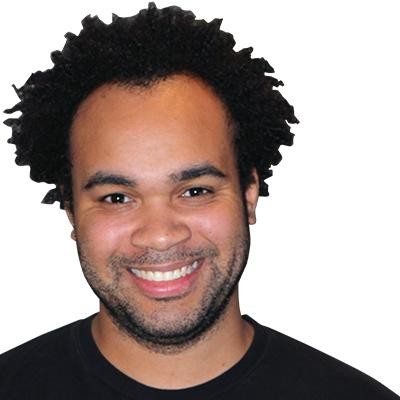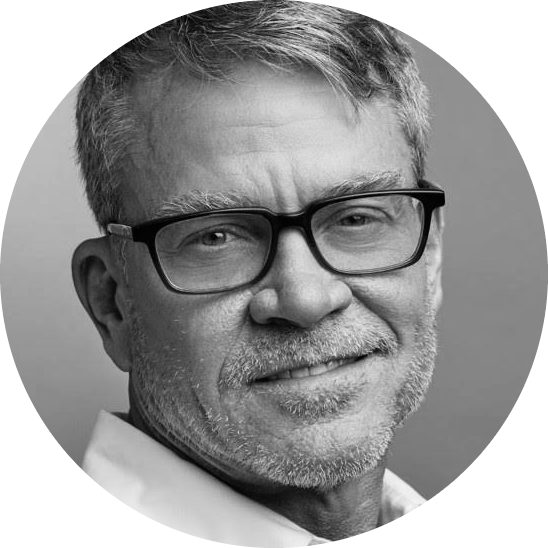Why this company created the role of a chief opportunity officer

Since the pandemic, a host of new roles have emerged to meet modern workforce needs. There’s been the introduction of the chief metaverse officer, chief automation officer, head of betterment and employee experience manager, to name a few.
Guild, a career opportunity platform used by companies including Chipotle, Target, Walmart and Disney, is backing chief opportunity officer as the next new role needed to ensure there is economic mobility and ample career opportunities for everyone.
The company promoted Terrence Cummings, Guild’s former svp of Member Services, to this newly created role last week. He will be responsible for helping create career paths, both internally at Guild and externally with the businesses that they partner with. Guild’s learning community is made up of employees from their employer partners, who pay tuition to the learning partners on behalf of their employees, usually covering the full tuition cost of the program.
Approximately 56% of people within that learning community identify as a person of color, 75% have no prior degree beyond high school and 74% are first-generation college students, according to the company. Guild’s leadership team decided to commit to the creation of a new C-suite role dedicated entirely to ensuring they are receiving the best career development.
Terrence will report to the chief experience officer Bijal Shah and will work closely with chief people and purpose officer Dean Carter. “My responsibility is to create cultures of opportunity,” said Cummings. “My job will be to say how do we drive economic mobility.”
Cummings’ focus will be ensuring career advancement outcomes occur in tangible and meaningful ways – for instance changing a person’s role or increasing their salary. Guild claims that its learners are 2.2 times more likely to have internal mobility compared to non-engaged employees and have a 2.4 times higher wage increase as well, as a result of its existing programs. Under Cummings’ leadership, he will deepen the training for Guild’s growth and career coaching teams, expand what wrap-around support can look like for learners through student loan reimbursement and career support services, measure business success and hold themselves accountable by closely tracking role changes and salary increases.
Another big part of the job is ensuring that people from marginalized communities have access to interview support and resume support, looking at pathways to success that makes sense for both employers and employees, and having coaching solutions for support. Having a specific role for this instead of just intertwining it into other positions allows for an intense focus.
“We elevated this role to C-suite level to make sure that it happens,” said Cummings. “I want to continue to walk the walk. Then, we want to influence corporate America. Having other chief opportunity officers would be great. It’s great to be the first, but we don’t want to be the last.”
The importance of internal talent development has been brought into sharper focus, since the arrival of Covid-19, and Guild believes that the companies that will thrive in the future of work are those investing in their workforces today.
Cummings’ role will be geared around helping folks who are unlikely to have access to opportunities that allow them to progress their careers. Having grown up in a low-income household, with a father who was in jail, Cummings has personal insight into why a role like this is so critical.
“To get from here to there, what it took for me was to be in the right place at the right time with the right people,” said Cummings. “Not just once, but again, and again, and again.”
He says these workers shouldn’t need to get lucky over and over to be able to advance in their careers. Instead, they should consistently have access to opportunities that would enhance their development and careers.
Cummings and Guild’s CEO Rachel Romer started brainstorming the creation of this position last fall after hearing a keynote from chief people and purpose officer Dean Carter, who was formerly Patagonia’s chief people officer. The team was inspired and asked themselves what it would mean to take their career opportunity platform to the next level.
“The number one question that [staff give in employee surveys] most chief people officers are trying to drive is this: ‘I have the opportunity to learn and grow,’” said Carter. “For years, they’ve tried to move that and it really hasn’t moved that much. The people in the more senior levels have the opportunity to learn and grow. The majority of the people answering the survey are not having the opportunity to learn and grow – they feel stuck in a warehouse, in retail. The ‘unlock and leap’ for them isn’t happening.”
Given the role is totally new, it will be one that iterates and evolves depending on what’s needed. “It needs to be us working through this because no one else is really doing it,” said Carter. “We are testing and learning how to accelerate opportunity and increase wealth for people.”
Their goals and aspirations of the impacts of the chief opportunity officer role include giving everyone a strong foundation on which to build a successful career, ensuring belonging is felt every day, and that every worker will have a clear path to the middle class.
Regardless of whether or not the role of chief opportunity officer takes off across other businesses, its creation is yet another signal of how employers continue to navigate the post-pandemic workforce. Figuring out what specific roles make sense to try and drive forward a company’s new goals, will naturally vary according to the company. To narrow down what’s needed, leaders must focus on the motivation behind any new role, according to workplace strategic futurist Ayelet Baron.
“We need to look at the human side of it, not the mechanical side,” said Baron. “We’re so driven by productivity and efficiency and growth. A lot of it is misaligned with nature. We need to ask as leaders if the decisions we are making are because we really care about the people or if we’re just going through the motions because it’s the best practice.”


